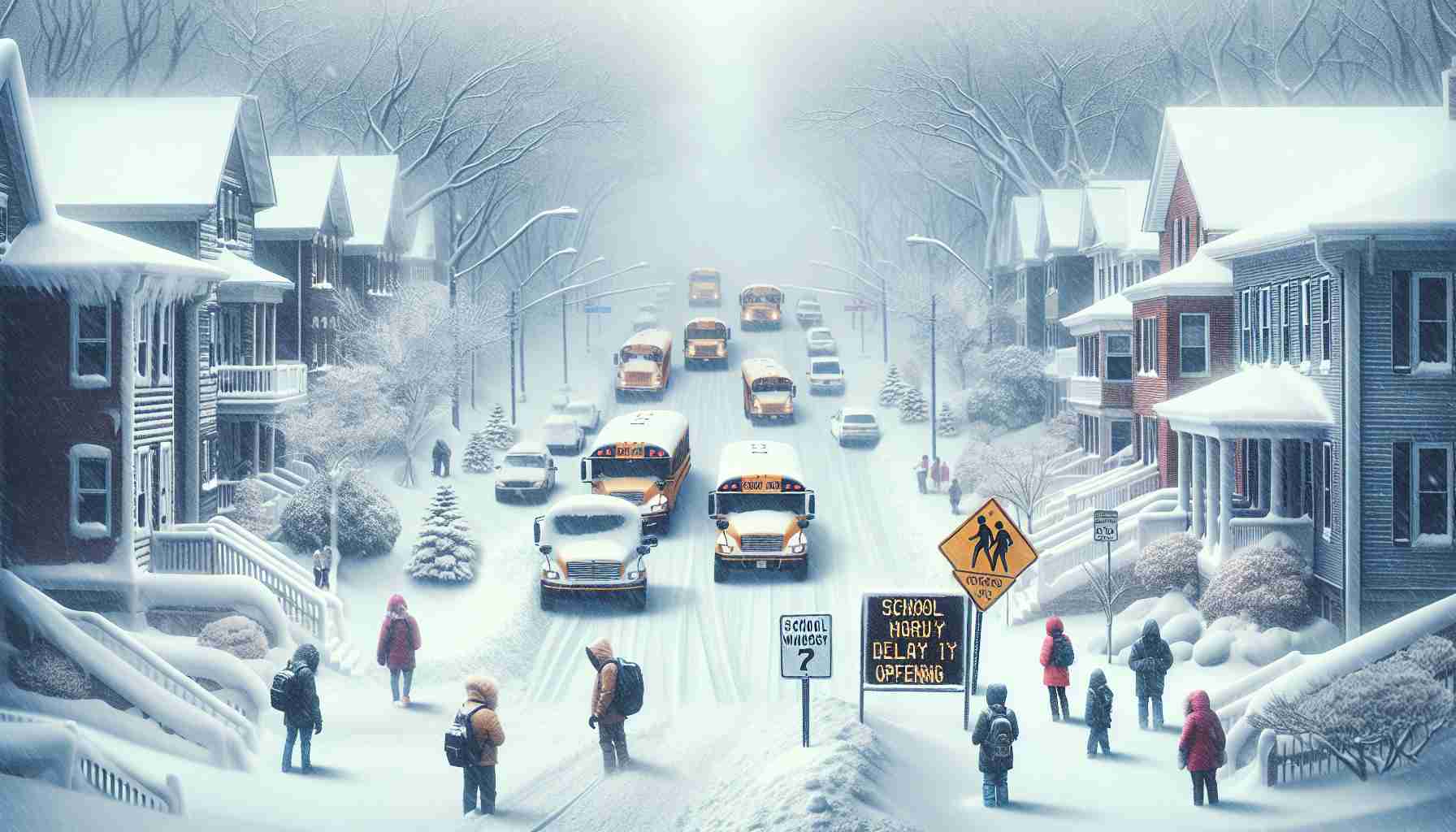Severe Weather Impacts Education
New Jersey is bracing for a harsh winter as continued snow removal efforts and dangerously low temperatures prompt several school districts to push back their start times this Tuesday. Following Sunday’s snowfall, icy conditions have emerged after temperatures plummeted overnight. With lows ranging from 2 to 11 degrees Fahrenheit, the chief meteorologist for NJ 101.5 warns that the region has entered what he describes as “the danger zone.” Wind chills may even feel as frigid as -5 degrees.
For the first time, New Jersey has issued a Cold Weather Advisory, a critical alert aimed at protecting residents from the risks associated with extreme cold. This advisory, which replaces the previous Wind Chill Advisory, highlights the potential for hypothermia and frostbite due to the combination of wind and sub-zero temperatures.
On Tuesday, the forecast predicts high temperatures barely reaching the upper teens, compounded by a slight breeze that will make it feel like a brisk zero degrees. As night falls, lows are expected to drop between -3 and 10 degrees, creating an even more frigid environment.
Residents are advised to stay informed about school delays and cancellations as this weather system continues to affect daily life. With a winter season still in effect, safety precautions are paramount during this extremely cold period.
Weather Extremes: A Societal Wake-Up Call
The recent severe winter weather in New Jersey underscores the urgent need to address climate change’s lasting impact on education systems and broader societal structures. As school districts grapple with frequent delays and cancellations, the implications ripple through communities, affecting not just student learning but also working parents who must adapt to sudden changes. This tug-of-war between academic schedules and environmental realities prompts a reevaluation of how educational institutions prepare for increasingly unpredictable weather patterns.
Moreover, the economic strain attributed to weather-related disruptions cannot be overlooked. With frequent closures, educational establishments face potential funding losses as attendance dips and resources are diverted towards emergency preparedness. This situation becomes particularly stark in low-income areas where access to remote learning may be limited, exacerbating inequalities.
As we move forward, the potential for environmental repercussions also looms large. Snowfall and temperature records suggest a trend toward more extreme weather conditions, raising questions about infrastructure resilience and public safety. Long-term implications may lead to policy shifts favoring sustainable practices and climate adaptation strategies, driving a fundamental transformation in how societies structure education in relation to environmental awareness.
Ultimately, this winter serves as a reminder of our vulnerability in the face of climate change, highlighting the need for a proactive and holistic approach to safeguarding educational integrity while nurturing the next generation’s understanding of environmental stewardship.
How Extreme Cold Weather is Shaping Educational Policies in New Jersey
Understanding the Impact of Severe Weather on Education
Severe weather conditions, particularly during winter months, significantly affect various aspects of daily life, especially in regions like New Jersey that encounter harsh winters. This year, New Jersey is facing an exceptionally cold season, marked by heavy snow and dangerously low temperatures. These weather challenges not only hinder daily activities but also compel educational institutions to adapt their schedules.
The Cold Weather Advisory
For the first time, New Jersey has implemented a Cold Weather Advisory, reflecting the seriousness of the situation. This advisory, which highlights the dangers of extreme cold, replaces the earlier Wind Chill Advisory. Residents are cautioned about the risks of hypothermia and frostbite, emphasizing the need for vigilance as wind chills may feel as frigid as -5 degrees Fahrenheit.
Educational Institutions’ Adaptive Measures
Due to the severe weather, several school districts across New Jersey have adjusted their schedules, pushing back start times to ensure the safety of students and staff. School administrators are closely monitoring the climate forecasts and are prepared to announce delays or cancellations as necessary.
Trends in School Emergency Protocols
As climate change leads to more unpredictable weather patterns, schools nationwide, not just in New Jersey, are increasingly revisiting their emergency protocols. Many districts are adopting flexible scheduling and virtual learning practices as part of a broader strategy to maintain educational continuity despite severe weather events. This trend indicates a shift towards more proactive measures enabling educational institutions to respond swiftly to adverse conditions.
Safety Precautions for Students and Staff
In light of the extreme cold, it’s crucial for both students and staff to follow safety protocols, including wearing appropriate winter clothing and avoiding prolonged exposure to the cold. Schools are encouraged to implement educational programs that teach students about the dangers of severe winter weather and how to stay safe during such conditions.
Looking Ahead: Predictions and Insights
Experts predict that winters may continue to be harsher due to climate variations. Educational authorities are advised to invest in infrastructure improvements that can withstand severe weather and to develop comprehensive plans for continued education during emergency weather situations.
Features of Effective School Systems during Severe Weather
– Communication: Timely updates regarding delays or cancellations are essential for parents and guardians.
– Preparedness Training: Schools should conduct drills that prepare students and staff for various weather-related emergencies.
– Infrastructure Improvements: Investing in facilities that can provide shelter and warmth during extreme weather is crucial.
Conclusion
As New Jersey navigates through this intense winter, the impact of severe weather on education underscores the importance of adaptation and preparedness. With thoughtful policies and effective communication, schools can ensure the safety and well-being of their communities while continuing to provide quality education.
For more information about educational policies and updates related to severe weather, check out New Jersey State Government.
